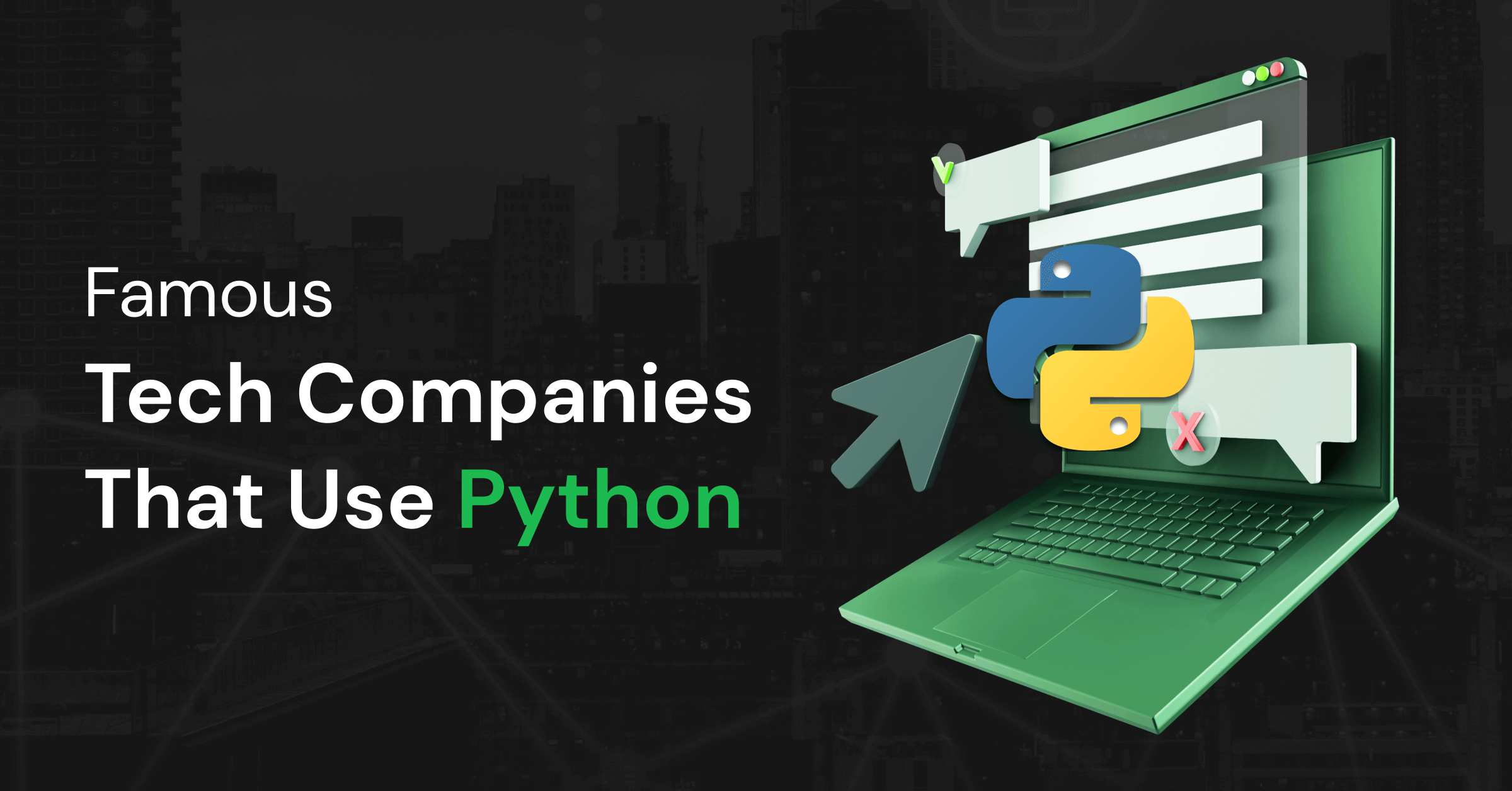
16 Famous Tech Companies That Use Python In 2025
Apr 01, 2025 5 Min Read 16362 Views
(Last Updated)
Python continues to be a go-to language for the world’s top tech players, from automating backend operations to powering advanced AI systems. Whether you browse your favorite streaming app, transfer money online, or order groceries from your phone, Python is probably working behind the scenes.
Many high-growth companies and global enterprises – spanning fintech, e-commerce, social media, and space research – use Python to build reliable, scalable, and easy-to-maintain systems.
Its clean syntax, vast libraries, and quick development cycle make it a favorite across industries. If you aim to work at one of the tech companies that use Python, learning this language is one of the most brilliant career moves you can make today.
Table of contents
- Top 16 Tech Companies That Use Python In 2025
- 1. Google
- Netflix
- 3. Dropbox
- 4. Stripe
- 5. Amazon
- 7. Facebook
- 8. Instagram
- 9. Spotify
- 10. Quora
- 11. PayPal
- 12. Uber
- 13. Pinterest
- 14. NASA
- Instacart
- Lyft
- Conclusion
- FAQs
- Why do so many tech companies use Python?
- Which industries prefer Python the most?
- Which companies use Python in India?
- Is Python still worth learning?
- What job roles typically require Python skills?
Top 16 Tech Companies That Use Python In 2025
Developed in the 1990s, Python remains one of the most popular programming languages in the world. It is central to the tech stacks of some of the biggest and industry-leading companies.
Let’s explore how these tech companies that use Python stay efficient, scalable, and ahead of the curve.
1. Google

Google has been using Python since its early days. And that hasn’t changed in 2025. The language helps the company move fast, maintain codebases easily, and deploy at scale.
Python is actively used in Google’s search algorithms, YouTube backend, internal systems, and across AI/ML projects.
What makes Python so valuable for Google is its readability and versatility. It supports experimentation, which is vital for a company constantly testing new features across products like Android, Gmail, and Google Assistant.
It’s also one of Google’s official server-side languages, alongside C++, Java, and Go.
2. Netflix

Netflix leans on Python to manage everything from data analysis to backend services. The language powers tasks like automating alerts, managing security operations, and building internal tools for monitoring and visualization.
Python is also widely used in Netflix’s machine-learning workflows to improve user recommendations and personalize thumbnails.
The language’s vast ecosystem helps Netflix experiment and deploy fast. Since the platform runs on microservices, Python’s simplicity makes it easier to test, update, and manage services independently – key to keeping a global streaming service smooth and scalable.
Before diving into the next section, ensure you’re familiar with Python essentials from the basics to the advanced level. If you are looking for a detailed Python career program, you can join GUVI’s Python Career Program with placement assistance. You can master the multiple exceptions, classes, OOPS concepts, dictionaries, and many more and build real-life projects.
Also, if you want to explore Python through a self-paced course, try GUVI’s Python Self-Paced Course.
3. Dropbox
Dropbox started with Python – and stuck with it as it scaled to hundreds of millions of users. Its desktop client, APIs, and many backend services were originally built using Python. Even Guido van Rossum, the creator of Python, joined Dropbox to work on improving the language’s performance in real-world applications.
Python’s role in Dropbox is rooted in its ability to simplify cross-platform development and enable rapid iteration. The company uses it to build features quickly, write clean server-side code, and maintain its infrastructure efficiently.
4. Stripe
Stripe is one of the most recognized tech companies that use Python to build APIs and power its payment infrastructure. The company uses Python extensively to handle transactions, manage subscriptions, and integrate fraud detection tools across web and mobile apps.
Python’s simplicity allows Stripe’s developers to iterate fast and reduce time-to-market for new features. It’s also a preferred language among fintech developers, thanks to its reliability in handling complex calculations and ease of integration with data-heavy systems.
5. Amazon

Amazon depends on Python to drive several core systems – especially those involving big data, recommendation engines, and automation on AWS.
Amazon’s many features, such as personalized deals, product suggestions, and customer analytics, are all backed by AI and machine learning algorithms.
Among the tech companies that use Python, Amazon stands out for scale. The language integrates well with tools like Hadoop and Jupyter notebooks, which Amazon uses across its cloud services.
Python’s flexibility helps Amazon manage vast datasets while keeping operations smooth and cost-efficient.
6. Reddit
Reddit is another early adopter among the tech companies that use Python. It switched from Lisp to Python just months after launch.
The decision was driven by Python’s developer-friendly syntax, vast library support, and quick deployment cycle – ideal for a platform that thrives on constant user interaction and content updates.
Python powers Reddit’s backend, handling everything from content moderation to real-time updates and recommendation algorithms. Its flexibility helps Reddit’s team experiment fast while keeping infrastructure lean and maintainable.
7. Facebook
Facebook is a major player among tech companies that use Python, especially for backend engineering and infrastructure management.
Python plays a key role in production engineering – supporting automation, system reliability, and smooth updates across the platform.
Developers at Facebook rely on Python to build internal tools and scripts that help developers test, monitor, and debug at scale. Python’s simplicity and maintainability help Facebook ship faster while supporting billions of users across products like Messenger, Instagram, and WhatsApp.
8. Instagram
Instagram is one of the most widely used products from the list of tech companies that use Python. The social platform relies on Python to manage everything from server-side logic to data processing for billions of daily interactions – photos, videos, reels, and more.
The developers chose Python for its clean structure and ability to scale. Even as user numbers exploded, Python helped them stay agile, maintain fast development cycles, and reduce overhead.
At present, Instagram runs on Python 3, supporting everything from feature updates to AI-driven content ranking.
9. Spotify
Spotify is one of the most data-driven tech companies. It uses Python to manage both backend systems and user-facing features.
The company relies on Python for data analysis, recommendation engines, and internal tools, ensuring listeners get personalized playlists, smart search results, and relevant music suggestions.
Spotify also uses Luigi, a Python module that handles workflow management with Hadoop. This setup helps track errors, schedule tasks, and automate big data pipelines across teams working with machine learning and content discovery.
10. Quora
Quora stands out for using Python to build an intelligent, community-driven platform. The founders chose Python early for its readability and ease of use, allowing the team to iterate quickly on features like upvotes, content feeds, and spam filtering.
Python’s compatibility with frameworks like Django and Pylons helped Quora scale fast while maintaining clean code. It also works well with JavaScript for asynchronous page updates, which is important for the smooth question-and-answer experience the platform is known for.
11. PayPal
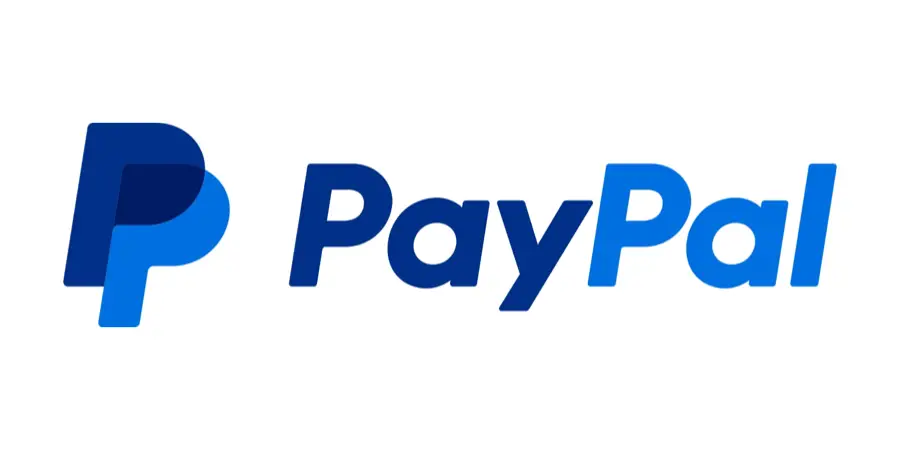
PayPal is one of the largest fintech companies using Python in its backend architecture.
Python supports the systems that keep millions of daily transactions secure and efficient, from fraud detection to transaction security and real-time analytics.
The engineering team uses Python to automate workflows, manage APIs, and maintain infrastructure. Its integration with other technologies helps PayPal meet global scalability and compliance standards without slowing product development.
12. Uber
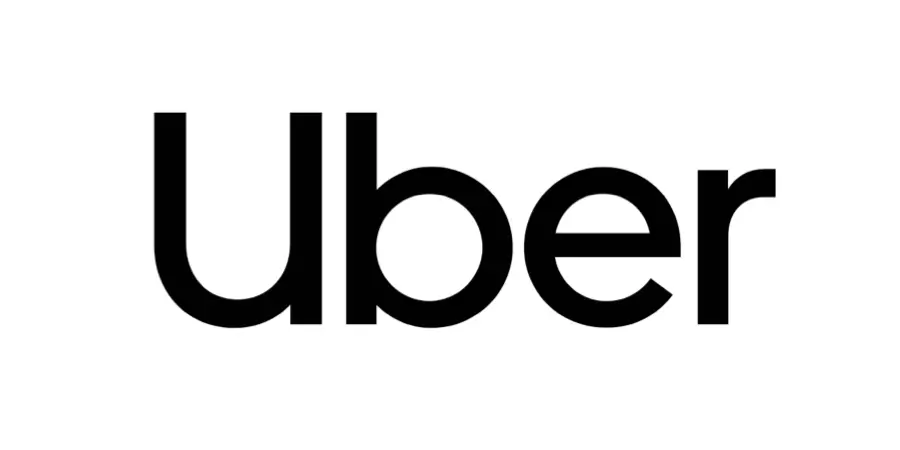
Uber relies heavily on Python to manage ride-matching, real-time tracking, and dynamic pricing.
Among tech companies that use Python, Uber benefits from the language’s speed and scalability, which is especially important for handling live data from millions of users across cities worldwide.
Python works alongside Node.js and Go in Uber’s backend, but it remains a top choice for fraud detection, automation, and data visualization services.
Tools like Tornado, a Python web framework, help Uber maintain fast response times and efficient load handling.
13. Pinterest
Pinterest is a visual discovery platform and one of the most product-focused tech companies. They use Python for their web servers and application logic.
The backend uses Django for rapid development and consistent performance, supporting billions of pins and personalized feeds.
Python allows Pinterest’s developers to test and deploy features with minimal friction. Combined with Tornado and some Node.js components, the platform delivers a smooth, responsive experience for users exploring lifestyle content, design ideas, and inspiration boards.
14. NASA
NASA might not be the first name that comes to mind, but it’s one of the most innovative tech companies that use Python for their scientific research and automation.
Python is used in NASA’s Workflow Automation System (WAS) for shuttle mission planning and data management.
Python’s clarity and speed help NASA engineers prototype tools quickly and manage large datasets without unnecessary complexity.
Several of NASA’s open-source projects and simulations today are powered by Python, making the language a part of real-world space missions.
15. Instacart
Instacart uses Python to manage logistics, user experience, and real-time order tracking.
Its backend – built using Python and Ruby – handles store mapping, shopper assignment, and delivery windows with high precision.
Python helps Instacart deliver groceries from local stores within tight timeframes.
With the rise of quick commerce, Python’s ability to process data, handle APIs, and support machine learning models ensures the platform runs smoothly under pressure.
16. Lyft
Like its rival Uber, Lyft uses Python for backend services, fraud detection, and data science workflows.
Lyft uses libraries like NumPy, Pandas, and PuLP to handle everything from real-time pricing to route optimization.
Python also powers Lyft’s work with Jupyter notebooks and PySpark for machine learning and predictive analysis. Python plays a consistent role in Lyft’s growth and operations, from automating ride allocation to scaling driver support tools.
Kickstart your programming journey by enrolling in GUVI’s Python Career Program, where you will master technologies like multiple exceptions, classes, OOPS concepts, dictionaries, and many more, and build real-life projects.
Alternatively, if you want to explore Python through a self-paced course, try GUVI’s Python Self-Paced Course.
Conclusion
These 16 tech companies that use Python showcase the hold of the language across industries, scales, and product types.
The programming language powers some of the most impactful digital systems in the world, be it streaming services and social platforms to fintech giants and space research.
If you’re willing to build a career in software development, consider aligning your skills with companies using Python. Doing so can open up favorable opportunities.
With its strong community, massive library support, and real-world applications, Python will remain the go-to programming language to learn. Go through our list of the best YouTube channels to learn Python.
FAQs
Why do so many tech companies use Python?
Python is easy to write, scale, and integrate with other systems. It supports fast development, which helps tech companies launch and iterate products quickly. Its rich ecosystem of libraries makes it suitable for AI, automation, and web applications.
Which industries prefer Python the most?
Industries like fintech, e-commerce, healthcare, space tech, and social media rely heavily on Python for its flexibility, scalability, and strong machine learning support.
Which companies use Python in India?
Several companies use Python in India, including Flipkart, Zomato, Paytm, Freshworks, and Razorpay.
Is Python still worth learning?
Absolutely. Python remains in high demand across web development, AI, data science, and automation roles.
What job roles typically require Python skills?
Python is important for job roles like backend developer, data analyst, machine learning engineer, automation tester, and DevOps engineer. Many job listings in 2025 list Python as a must-have skill.
























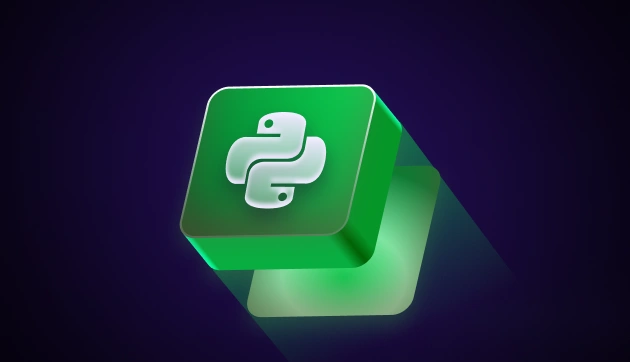

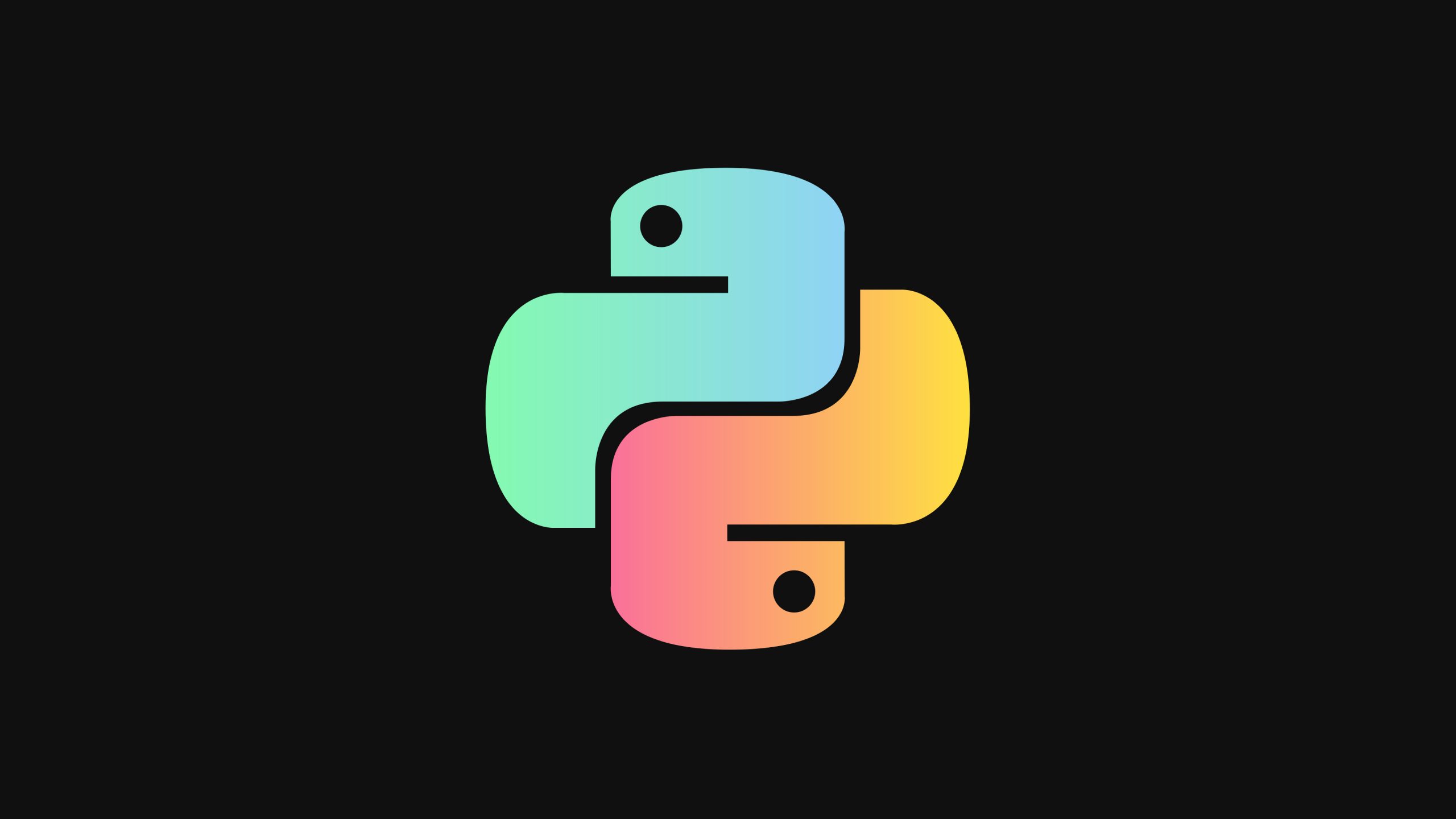
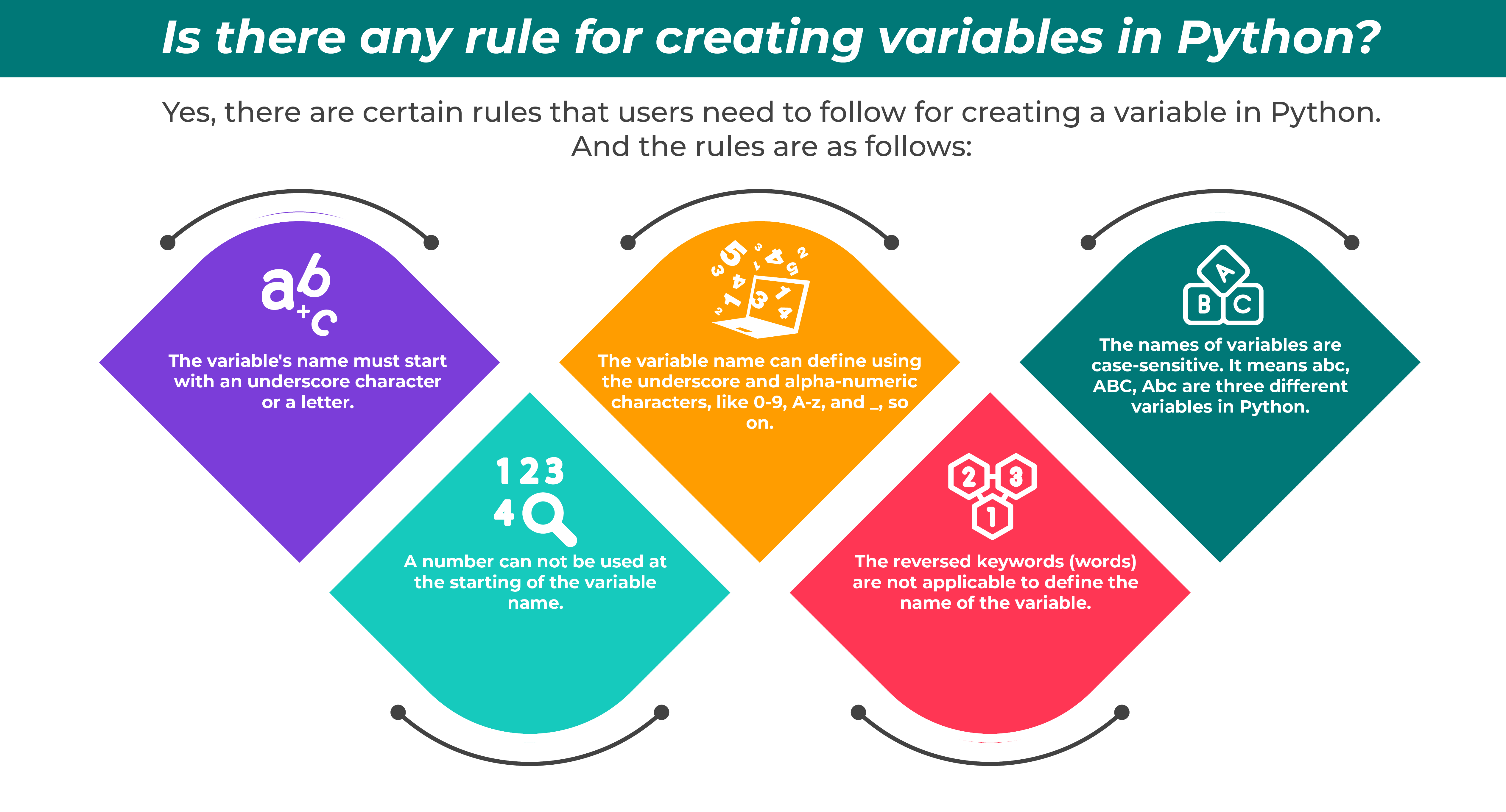


Did you enjoy this article?